The Door
The phrase 'it's a tragedy for a parent to outlive their child' (or variations of) is well used in all forms of life, especially when the circumstances are avoidable and when the parent blames himself/herself. When something like this occurs and the parent (or parents) can't cope with the tragedy, going off the rails with drink, drugs or severe depression, the phrase 'what if...' is one that will be frequently used, with the scenario mentally played over and over again to see what, if anything, could be done to change the past.
In The Door (Die Tür, 2009), David Andernach leaves his daughter, Leonie alone at home, catching butterflies, whilst he nips over the road for a quickie with his mistress, Gia. Returning home and calling for Leonie, he becomes increasingly anxious when there is no reply and, having checked the house, goes into the back garden where he sees something in the swimming pool. Diving in, he finds Leonie attached to the filter by an untied shoelace and, despite his best efforts, David cannot pull her free.
The film then moves forward five years where David is no longer the successful artist he once was, is separated from his wife, Maja, and has really let himself go. Aside from heavy drinking, he keeps trying to see Maja to (yet again) apologise and try to make amends but she, with a new partner, wants nothing to do with him and threatens to take out a restraining order. In the depths of despair, David plunges into the now murky and neglected pool where he begins to see Leonie in a bright and picturesque environment where he can play with her again only to have this beautiful vision disappear when he wakes up, coughing up water, with a neighbour having just finished performing CPR on him.
Stumbling around the street late at night, David follows a butterfly and walks this through a gap in a broken fence and finds a door which opens to reveal a long tunnel. Deciding to investigate, David opens the door at the other end where it is a beautiful sunny day but everything looks strangely familiar. In almost Twilight Zone-style, David is on his own street where everything looks the same, but slightly different. Finding his house and letting himself in, David seems to recognise this is the day Leonie drowned so he dives into the swimming pool and, because he isn't screwing the neighbour, he is in time to save his daughter.
After that, he is busy looking around the well-known surroundings, which are far tidier and well kept than in the house he has just left when he notices a man in the next room. When the stranger approaches, David grabs him and a fight ensues. As the stranger, who is about his size but much stronger, is getting the upper hand, David reaches reaches for some kind of weapon and the only thing that comes to hand is a pencil which he sticks in the man's neck. As he recoils, David finds himself staring at himself - only that David has short hair, doesn't have the long stubble and is generally much tidier.
Having bled to death, Leonie calls down from her room to ask what is going on so David, not wanting her to come down and witness a scene that would be utterly confusing, tells her to stay in her room. Wanting to dispose of the evidence and make sure that no one finds out what has transpired, he buries the body in the back garden, burns his driver's license and other identification and then goes to the bathroom where he showers, cut his hair and shaves. When Maja comes home, a little earlier than expected with a close friend of theirs, Max Oelze who, like David, is also a successful artist, who she met supermarket, something that David wasn't expecting as she had left a message on the Answerphone saying she would be home early, she doesn't notice a difference in her husband and carries on as normal. Leone, however, senses something is wrong and, at dinner, yells that David isn't her father and is sent to her bedroom. Maja, wanting to know what her daughter meant, asks David to explain and he says that he yelled at Leonie because she tripped over her shoelace, something she has been repeatedly told to keep tied, and is now in a mood with him.
Everything is going very well until a strange man, Siggi Butschma, appears, killing someone who is trying to start a fight with David, and tells him he knows exactly what is going on as, he too, knows about the door and frequently travels back and forth between the two worlds, having first stumbled on the passage when he was on day release from prison. Wanting his family back together, David is keen to take Maja and Leonie back through the tunnel with him but the man says he will shoot him if he tries and can easily find him on the other side. In order to do that, he must find some way of dealing with Siggi, either convince Leonie that he is her father or find a workable solution and convince both her and Maja to walk through a strange, dark and foreboding tunnel with him. It's not going to be easy, especially as there is already a Maja on the other side.
As someone who likes films involving time travel, alternate dimensions and identity crisis, The Door sounded like a film that would be right up my street. Although I try and keep an open mind when watching a film for review, I did approach this with reasonably in my expectations but had read the press release so long ago that I'd forgotten the film is in German so was slightly surprised when Mads Mikkelsen, an actor from Finland who lives in Sweden with his wife, speaking both languages fluently, was in the opening scene speaking his German lines flawlessly. The opening sequence seemed to be influenced by Nicolas Roeg's masterpiece Don't Look Now as the agonising screams that David emits when he realises Leonie is dead is almost exactly the same as Donald Sutherland's anguished yell, albeit underwater!
Based on the novel by Akif Pirinçci (described in the trailer as 'the German Stephen King) and written for the screen by Jan Berger, this is a film with an intriguing plot that becomes increasingly interesting and complex as the film progresses and it transpires that David isn't the first person to use the time portal, nor the last. Whilst I was watching the film, my brain was constantly working and trying to figure out how events would work themselves out so that everyone would be content with proceedings and David will find peace with himself. It is a very clever and utterly involving film that is extremely well directed by Anno Saul who keeps things moving at a pace with extremely well developed characters and superb performances by Mikkelsen, Jessica Schwarz, as Maja, and an extraordinarily accomplished piece of acting by Valeria Eisenbart as Leonie, the emotional centre of the film.
If you like films in which there is an element of the supernatural, time travel or people trying to make amends for mistakes they have made in the past, you'll find a great deal to like here as The Door is an emotionally engaging and intelligent film that keeps you involved right until the very end.
The Disc
Extra Features
As this is a German film with a German crew and, aside from Mads Mikkelsen, a German cast, it is perhaps unsurprising that there is no commentary on the disc. However, it does contain the following:
Behind the Scenes (11:15) isn't a structured piece but shows how the film was shot and how Anno Saul directed the film with equal emphasis on the technical side and the acting with some rehearsal footage. Although it isn't particularly lengthy, this does give you an impression of how things work on a film set.
The Interviews are with six cast members plus director Anno Saul and Ralph Schwingel and Christoph Müller, they producer and co-producer, respectively. These are fairly brief, lasting from just over a minute to just over four minutes, with the actors talking about their characters and themselves and the crew members talking about different aspects of the filmmaking process from when they wanted to make a film of the book to the casting and the shoot itself. They are fairly typical EPK stuff but are worth a watch even if you have to select them separately as there is no play all function. Fortunately, when one finishes, the selection indicator moves down to the next automatically, so all you need to do is press the enter/okay button.
The Deleted scenes (18:03), twelve in all, are those which have been cut down either for a single quality reasons. You can select from individually or watch them together as, unlike the interviews, there is a play all function. Oddly, I didn't see anything which I hadn't seen before so either my mind is playing tricks on me or this disc contains the extended/director's cut.
Rounding off the extra features is a trailer which is in German with English subtitles.
The Picture
As most of the film takes place during daylight hours, with only a few scenes set at night or in a dark location, contrast levels didn't seem to be too important but, as some of those low light scenes are extremely important, it is essential that there is no loss of detail. Fortunately, both the brightly lit and extremely dark parts of the film are extremely clear and things didn't become to blurry or ill-defined when there is a nighttime scene or one where the lights are turned off.
Colours are solid and quite vibrant and Anno Saul (along with cinematographer Bella Halben and various members of the art department) uses the mise en scène to convey subtle changes in mood and things like mirrors to great effect. The most part, this is a slow burning thriller without much action but, as events progress, things become increasingly desperate so, when there is an action sequence, the picture quality doesn't suffer and everything is very well choreographed by the stunt department.
I have a love/hate relationship with film shot digitally but things seem to be improving all the time and this is an example of how good things can look when shot properly using decent equipment.
The Sound
You have the option of Dolby Digital 5.1 surround or 2.0 stereo and, for the most part, the film is dialogue dominated so either soundtrack would do as they are both extremely well balanced but, when there is a scene in which the front and rear surrounds come into play, the stereo soundtrack is found lacking and they are so much more effective with the 5.1 surround soundtrack.
The score, by Fabian Römer, is a very good one that never becomes too intrusive and is extremely effective in the more emotional scenes whilst helping to increase the tempo as time becomes a precious commodity and events become increasingly hectic.
For those of you who are fluent in German and would rather watch the film without English subtitles, they don't appear to be burnt in, but there is no option to turn them on or off on the menu so it may depend on your DVD player and remote control as to whether you can switch them off this.
Final Thoughts
The Door is an utterly engrossing and thought-provoking film with real emotion and brilliant character dynamics. The performances are all superb and Anno Saul directs the actors extremely well, using the wonderful screenplay to full effect.
The disc has very good picture and sound quality and a decent selection of extras which, although a little short, is more than I was expecting. If you are prepared to watch a film in a foreign language with subtitles and like thrillers with a strong element of mystery then this is worth a rental at the very least.
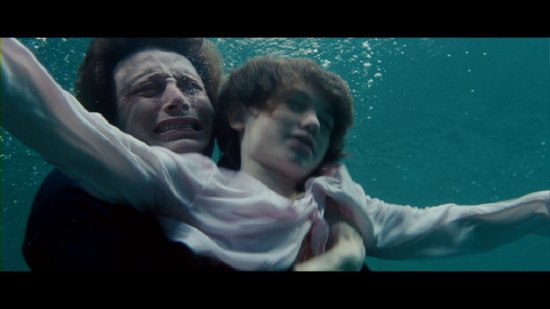
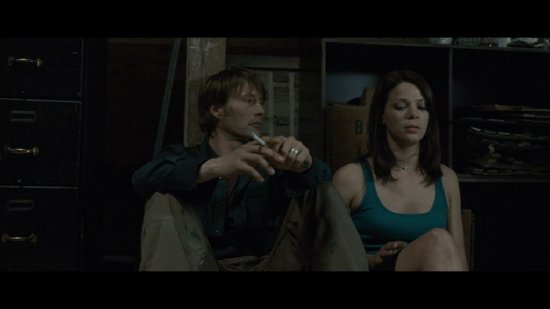
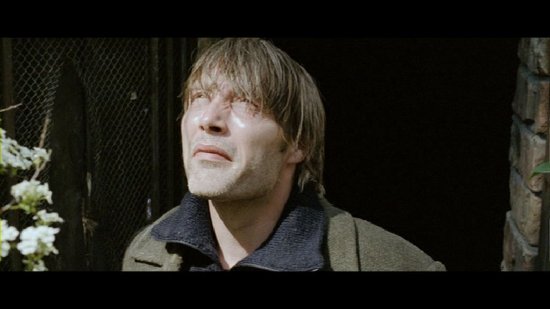
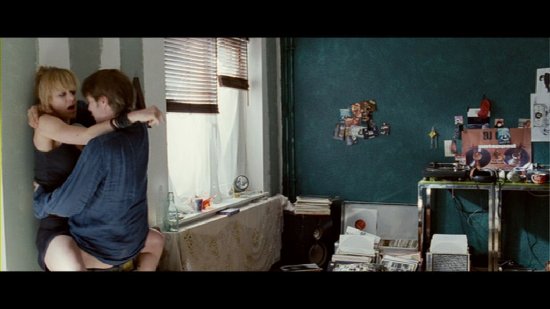
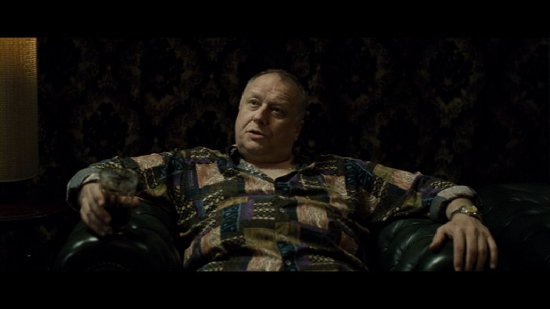
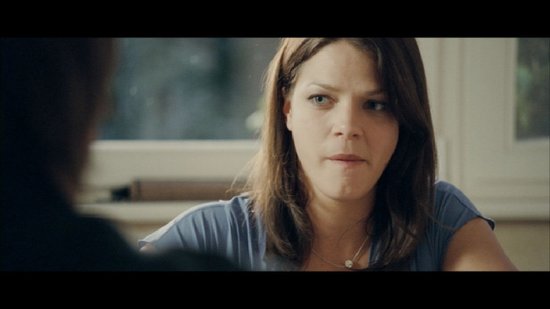
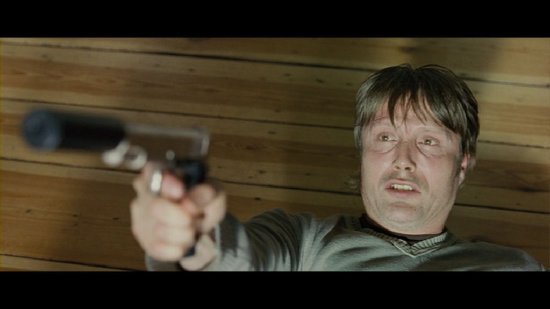
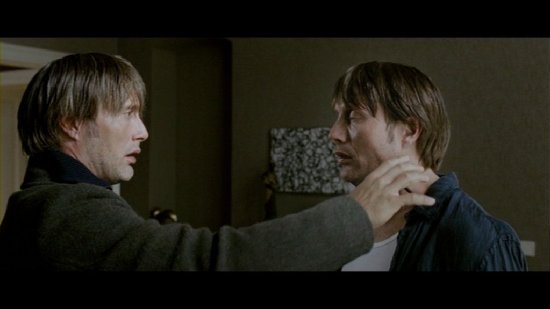
Your Opinions and Comments
Be the first to post a comment!